Class 7 Exam > Class 7 Notes > IGCSE Cambridge Science for Year 7 > Chapter Notes: Microorganisms
Microorganisms Chapter Notes | IGCSE Cambridge Science for Year 7 - Class 7 PDF Download
Types of Microorganism
Microorganisms Introduction
- Microorganisms, or microbes, are tiny living organisms that include bacteria, viruses, fungi, and the microbes found in yoghurt. These organisms are usually too small to be seen without a microscope.
- They are termed 'micro' due to their very small size.
- Microorganisms are unicellular, meaning they consist of a single cell. They carry out essential life processes and are a fundamental part of ecosystems.
- Microbes are vital in nutrient cycling, decomposition, and as part of the human microbiome.
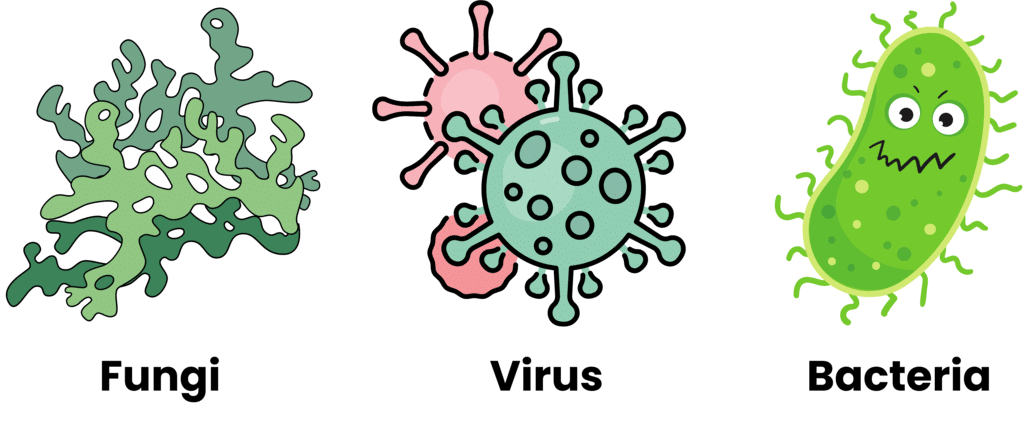 Microorganisms
Microorganisms
Fungi
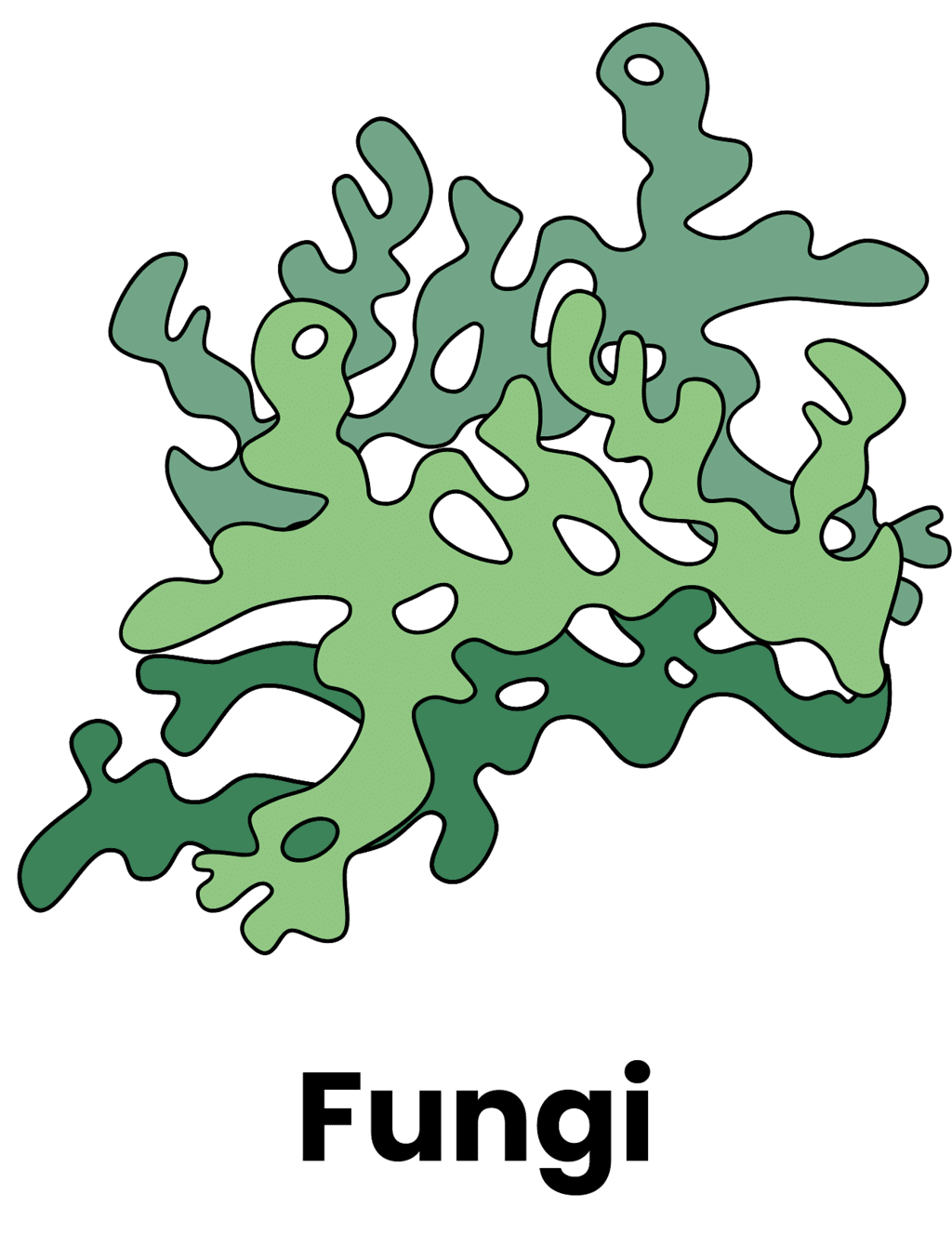
- Fungi are not plants; they do not photosynthesize but instead absorb nutrients from organic materials.
- Fungi can be multicellular (like mushrooms) or unicellular (like yeasts). Moulds, a type of fungi, grow by reproducing through spores, which are capable of traveling through air and growing on new sources.
- Some fungi are beneficial and used in cooking, while others, like certain moulds, can produce toxins and are hazardous.
Bacteria
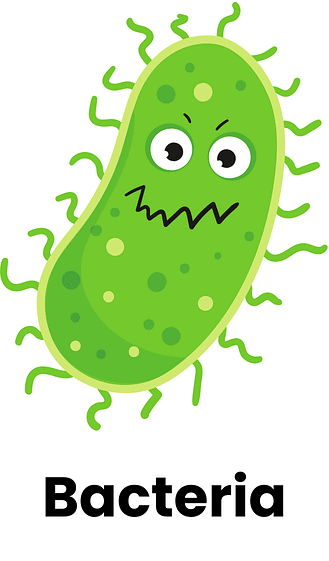
- Bacteria are unicellular organisms that can reproduce quickly. They can be found in every environment on Earth.
- Bacterial structure is simple, yet they are involved in both beneficial processes (like digestion and fermentation) and pathogenic activities.
Viruses
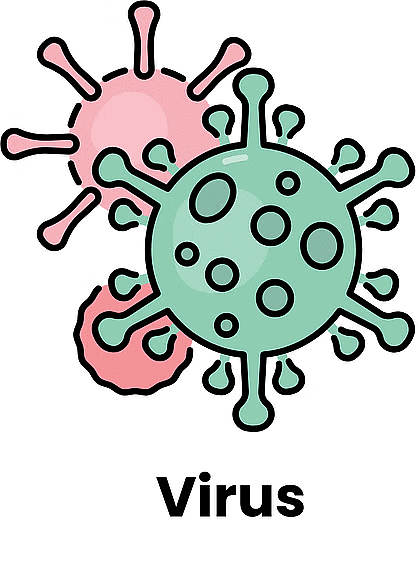
- Viruses are not cells but are tiny particles that infect living cells.
- Viruses must enter into a living cell to replicate (copy) themselves.
- Viruses can infect all types of life forms, from plants and animals to bacteria.
Question for Chapter Notes: MicroorganismsTry yourself: Which type of microorganism is responsible for decomposing organic materials?View Solution
Microorganisms and Decay
History and Discovery of Microorganisms
- Antonie van Leeuwenhoek first observed microorganisms in 1674.
- Initial scientific belief was that microorganisms spontaneously generated from the materials they were found in, such as bread creating mold.
Louis Pasteur's Experiments
- Louis Pasteur, a French scientist in the 19th century, questioned why clear soup would turn cloudy and start to smell when left open.
- He hypothesized that microorganisms in the air were responsible for spoiling food.
- Pasteur's experiments involved boiling soup in glass containers to kill any existing microorganisms and then allowing air to contact some of the soup while keeping other samples isolated. Only the soup exposed to air spoiled, supporting his hypothesis.
Scientific Method
- Involves asking questions, formulating hypotheses, and conducting experiments to test these hypotheses.
- A hypothesis must be testable, meaning experiments can be conducted to prove it right or wrong.
- The results from these experiments provide evidence to support or reject the hypothesis.
Decay
- Decomposers like bacteria and fungi cause decay/breakdown of materials.
- They also play a role in recycling nutrients from dead matter back into the soil.
Food Chain
- A food chain is a diagram showing feeding relationships in a habitat
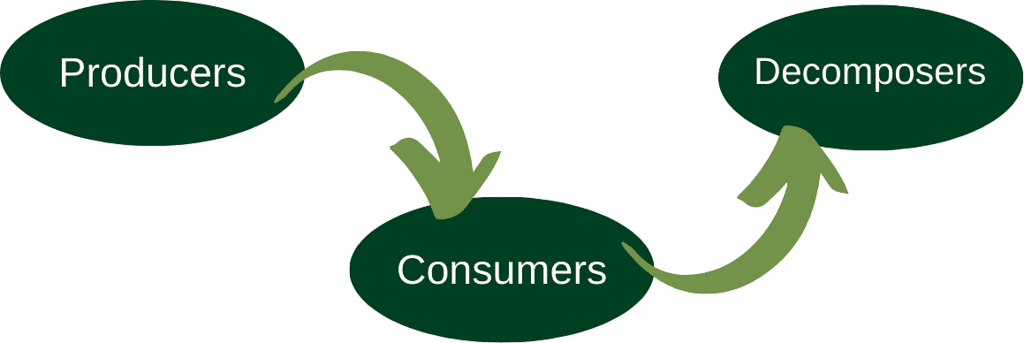
- It consists of producers (organisms that make their own food, like plants using sunlight) and consumers (animals that eat producers).
- Consumers can be classified as:
- Herbivores: Animals that eat only plants (primary consumers)
- Carnivores: Animals that eat other animals (secondary/tertiary consumers)
- Omnivores: Animals that can eat plants or animals
- Predators: Animals that hunt and eat other animals
- Prey: Animals that are hunted and eaten by other animals
Question for Chapter Notes: MicroorganismsTry yourself: What did Antonie van Leeuwenhoek observe in 1674?View Solution
Food Web
A food web is a diagram that shows how different food chains all interact in a habitat.
For example :
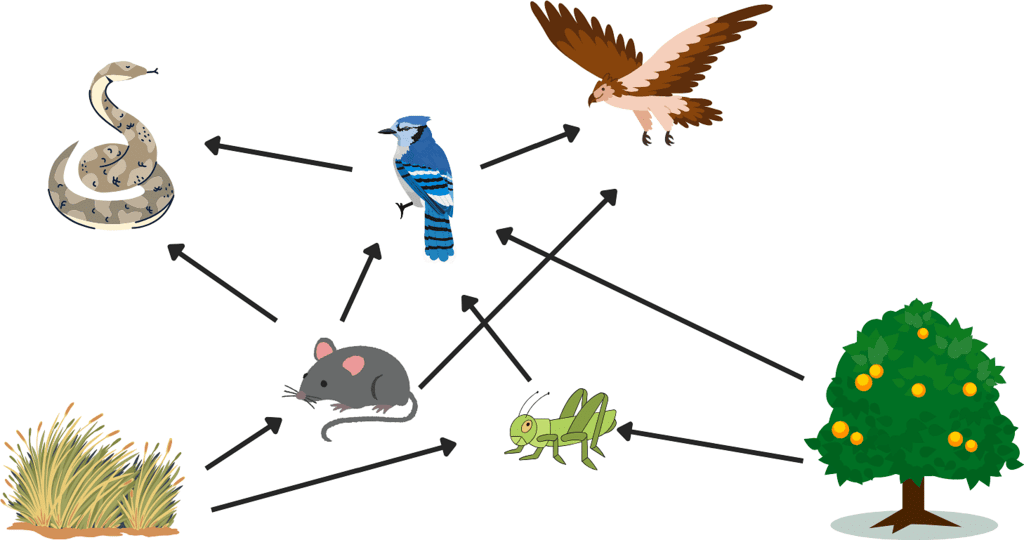 Food Web
Food Web
Energy Flow in Ecosystems
- Energy flows from producers to various levels of consumers. Not all energy consumed by one level is transferred to the next; some is lost a through respiration, waste, and organism death.
- Decomposers ensure that no energy is wasted by breaking down dead matter and recycling it into the ecosystem.
The document Microorganisms Chapter Notes | IGCSE Cambridge Science for Year 7 - Class 7 is a part of the Class 7 Course IGCSE Cambridge Science for Year 7.
All you need of Class 7 at this link: Class 7
|
32 videos|61 docs|22 tests
|
FAQs on Microorganisms Chapter Notes - IGCSE Cambridge Science for Year 7 - Class 7
| 1. What are the different types of microorganisms? |  |
Ans. The different types of microorganisms include bacteria, viruses, fungi, protozoa, and algae.
| 2. How do microorganisms contribute to decay? |  |
Ans. Microorganisms contribute to decay by breaking down organic matter, such as dead plants and animals, into simpler substances through the process of decomposition.
| 3. Can microorganisms be beneficial to the environment? |  |
Ans. Yes, microorganisms can be beneficial to the environment by promoting nutrient recycling, decomposing waste, and aiding in the production of food and medicine.
| 4. How do microorganisms affect human health? |  |
Ans. Some microorganisms can cause diseases in humans, such as bacteria causing infections or viruses causing illnesses like the common cold or flu.
| 5. What role do microorganisms play in the food industry? |  |
Ans. Microorganisms play a crucial role in the food industry by being used in processes like fermentation (e.g., making yogurt or cheese) and food preservation (e.g., pickling).
Related Searches
















